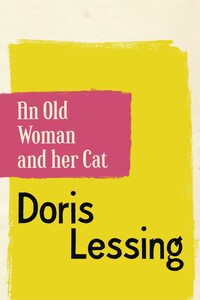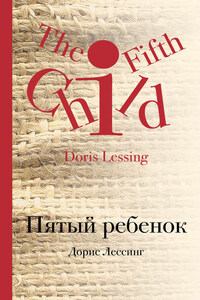This novel is entirely a work of fiction. The names, characters and incidents portrayed in it are the work of the author’s imagination. Any resemblance to actual persons, living or dead, events or localities, is entirely coincidental.
Fourth Estate
An imprint of HarperCollinsPublishers Ltd. 1 London Bridge Street London SE1 9GF
www.harpercollins.co.uk
Copyright © Doris Lessing 1972
This short story is from The Temptation of Jack Orkney: Collected Stories Volume Two (Flamingo, 2002, previously published by Flamingo 1994, Triad Panther 1979, Jonathan Cape 1978)
It originally appeared in The Story of a Non-Marrying Man
Doris Lessing asserts the moral right to be identified as the author of this work
A catalogue record for this book is available from the British Library
All rights reserved under International and Pan-American Copyright Conventions. By payment of the required fees, you have been granted the non-exclusive, non-transferable right to access and read the text of this ebook on-screen. No part of this text may be reproduced, transmitted, down-loaded, decompiled, reverse engineered, or stored in or introduced into any information storage and retrieval system, in any form or by any means, whether electronic or mechanical, now known or hereinafter invented, without the express written permission of HarperCollins ebooks
HarperCollinsPublishers has made every reasonable effort to ensure that any picture content and written content in this ebook has been included or removed in accordance with the contractual and technological constraints in operation at the time of publication
Ebook Edition © MARCH 2013 ISBN: 9780007525768
Version: 2016-10-21
Her name was Hetty, and she was born with the twentieth century. She was seventy when she died of cold and malnutrition. She had been alone for a long time, since her husband had died of pneumonia in a bad winter soon after the Second World War. He had not been more than middle-aged. Her four children were now middle-aged, with grown children. Of these descendants one daughter sent her Christmas cards, but otherwise she did not exist for them. For they were all respectable people, with homes and good jobs and cars. And Hetty was not respectable. She had always been a bit strange, these people said, when mentioning her at all.
When Fred Pennefather, her husband, was alive, and the children just growing up, they all lived much too close and uncomfortable in a Council flat in that part of London which is like an estuary, with tides of people flooding in and out: they were not half a mile from the great stations of Euston, St Pancras and King’s Cross. The blocks of flats were pioneers in that area, standing up grim, grey, hideous, among many acres of little houses and gardens, all soon to be demolished so that they could be replaced by more tall grey blocks. The Pennefathers were good tenants, paying their rent, keeping out of debt; he was a building worker, ‘steady’, and proud of it. There was no evidence then of Hetty’s future dislocation from the normal, unless it was that she very often slipped down for an hour or so to the platforms where the locomotives drew in and ground out again. She liked the smell of it all, she said. She liked to see people moving about, ‘coming and going from all those foreign places’. She meant Scotland, Ireland, the North of England. These visits into the din, the smoke, the massed swirling people, were for her a drug, like other people’s drinking or gambling. Her husband teased her, calling her a gipsy. She was in fact part-gipsy, for her mother had been one, but had chosen to leave her people and marry a man who lived in a house. Fred Pennefather liked his wife for being different from the run of the women he knew, and had married her because of it; but her children were fearful that her gipsy blood might show itself in worse ways than haunting railway stations. She was a tall woman with a lot of glossy black hair, a skin that tanned easily, and dark strong eyes. She wore bright colours, and enjoyed quick tempers and sudden reconciliations. In her prime she attracted attention, was proud and handsome. All this made it inevitable that the people in those streets should refer to her as ‘that gipsy woman’. When she heard them, she shouted back that she was none the worse for that.
After her husband died and the children married and left, the Council moved her to a small flat in the same building. She got a job selling food in a local store, but found it boring. There seem to be traditional occupations for middle-aged women living alone, the busy and responsible part of their lives being over. Drink. Gambling. Looking for another husband. A wistful affair or two. That’s about it. Hetty went through a period of, as it were, testing out all these, like hobbies, but tired of them. While still earning her small wage as a saleswoman, she began a trade in buying and selling second-hand clothes. She did not have a shop of her own, but bought or begged clothes from householders, and sold these to stalls and the second-hand shops. She adored doing this. It was a passion. She gave up her respectable job and forgot all about her love of trains and travellers. Her room was always full of bright bits of cloth, a dress that had a pattern she fancied and did not want to sell, strips of beading, old furs, embroidery, lace. There were street traders among the people in the flats, but there was something in the way Hetty went about it that lost her friends. Neighbours of twenty or thirty years’ standing said she had gone queer, and wished to know her no longer. But she did not mind. She was enjoying herself too much, particularly the moving about the streets with her old perambulator, in which she crammed what she was buying or selling. She liked the gossiping, the bargaining, the wheedling from householders. It was this last which – and she knew this quite well of course – the neighbours objected to. It was the thin edge of the wedge. It was begging. Decent people did not beg. She was no longer decent.














